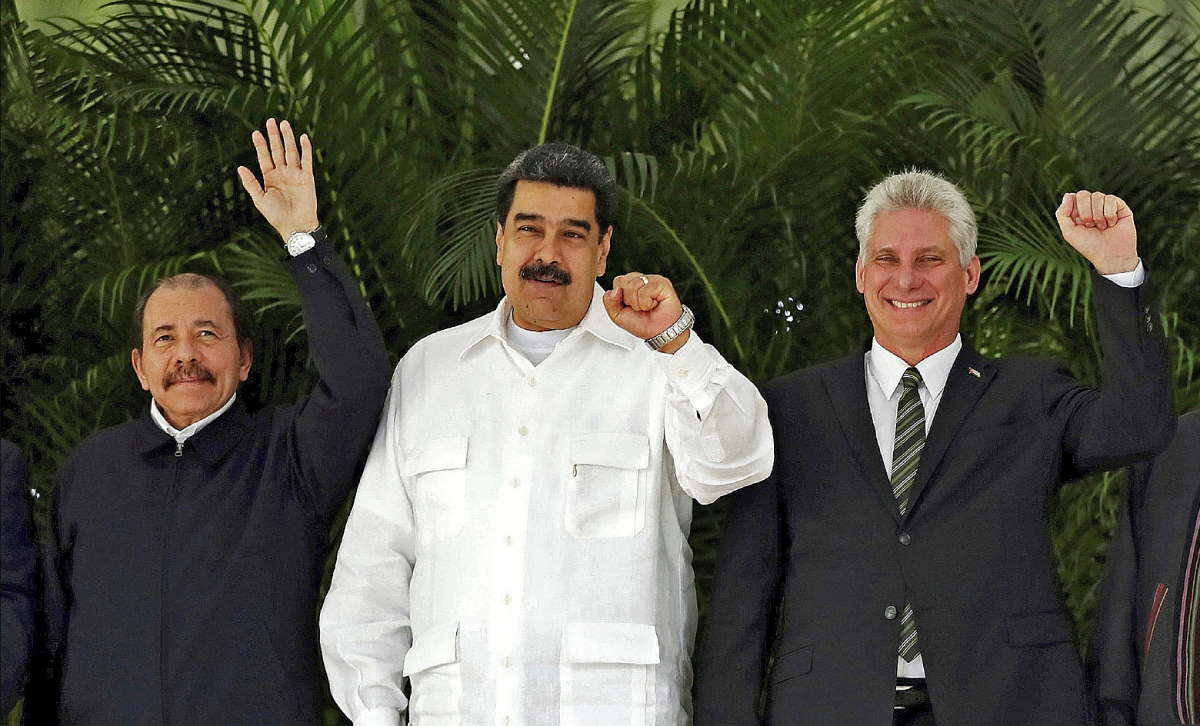There is a lot of talk about them, but little is known. The São Paulo Forum and the Puebla Group were protagonists and are heirs of the so-called “pink tide” of leftist governments that spread throughout the region at the beginning of the millennium. While governments related to these spaces have set the tone for the region during the last two decades, there is also a dramatic erosion of democratic institutions. Both phenomena are closely intertwined. The actors of the first pink tide have become a pink galaxy that today comprises left-wing actors, institutions, and associations that, behind a progressive façade, undermine the principles of liberal democracy. The São Paulo Forum, today the organization of political parties with the most governments in Latin America, and the Puebla Group, a group of left-wing activists, are just two of several institutions in the pink galaxy. It is also worth mentioning, among others, the Latin American Council of Social Sciences (CLACSO) as a disseminator of highly biased academic communications and publications and the Progressive International (Progressive International) that connects Latin American leftist organizations with their peers outside the region.
Although in all these constellations democratically legitimate stars are united with authoritarian planets, it is the latter who dominate them. Thus, the pink galaxy forms a platform of support for dictatorships. It particularly highlights the central role that Cuba continues to play in this context. Havana is a kind of socialist Vatican, a unifying element whose dogmas are not questioned.
Shared ideology
The pink galaxy operates in some areas according to the logic of a transnational authoritarian leftist party. It shares a solid ideological base, has formalized and institutionalized coordination channels, and a corporate instinct for power. Its extensive network of people and organizations serves to support each other via letters of support, to intercede in conflicts with the justice system, or to support similar candidacies in international organizations. He opposes “neoliberalism” and “imperialism” from the United States. It rejects the conception of liberal democracy and demands its replacement by a more “radical” or “participatory” democracy. He is very skilled at spreading his narratives.
One of them is the so-called “lawfare”, an alleged political persecution against left-wing leaders such as the former Argentine president Cristina Fernández de Kirchner, the former Ecuadorian president Rafael Correa or the former Peruvian coup president Pedro Castillo. At the same time, the actors of the pink galaxy ignore or defend the trampling of the rights and freedoms of political opponents in Cuba, Nicaragua, or Venezuela. In this context, the thunderous silence regarding the exclusion of María Corina Machado from the presidential elections in Venezuela is significant.
Global actors
This constellation is also fertile ground for authoritarian foreign powers such as Russia, China, and Iran. They share with the pink galaxy their rejection of Western liberal values particularly the United States. The Kremlin has acquired a unique role in this context. Its media is headed by Actualidad RT show, like the Iranian channel HispanTV, an absolute alignment with the pink galaxy. This closeness between Russia and the pink galaxy is shown on numerous occasions.
Examples are the lack of condemnation of the Russian invasion of Ukraine in statements by the Puebla Group and the São Paulo Forum, the joint organization in the middle of the war of Academic Forums by CLACSO and the Russian agency Sputnik in Saint Petersburg or the massive participation of people from the orbit of the pink galaxy in a Russia-Latin America Parliamentary Forum organized by the Russian parliament in October 2023 in Moscow with the participation of Vladimir Putin.
An extensive network
The proximity to Russia, China, and Iran helps to better understand some recent geopolitical comments by left-wing leaders. Thus, Lula da Silva, as co-founder of the São Paulo Forum, one of the fundamental figures of the pink galaxy, questioned Vladimir Putin’s responsibility in the death of the Russian opponent Alexei Navalny while President Gustavo Petro compared, like Lula, Israel’s war in Gaza with the genocide by the Nazi dictatorship in Germany. The latter is a narrative spread by Iran.
The pink galaxy itself is an actor that seriously damages democracy in Latin America while building bridges so that foreign authoritarian actors can use the region for their geopolitical ends. By being in permanent attack mode and appealing to negative primary emotions such as fear, anger, or frustration, the pink galaxy often manages to evade criticism of its own lack of democratic coherence surprisingly well.
This is why it is essential to make transparent the actors, allies, and ways of acting of the pink galaxy. It is time for democrats of all political stripes to join ranks against this threat.











